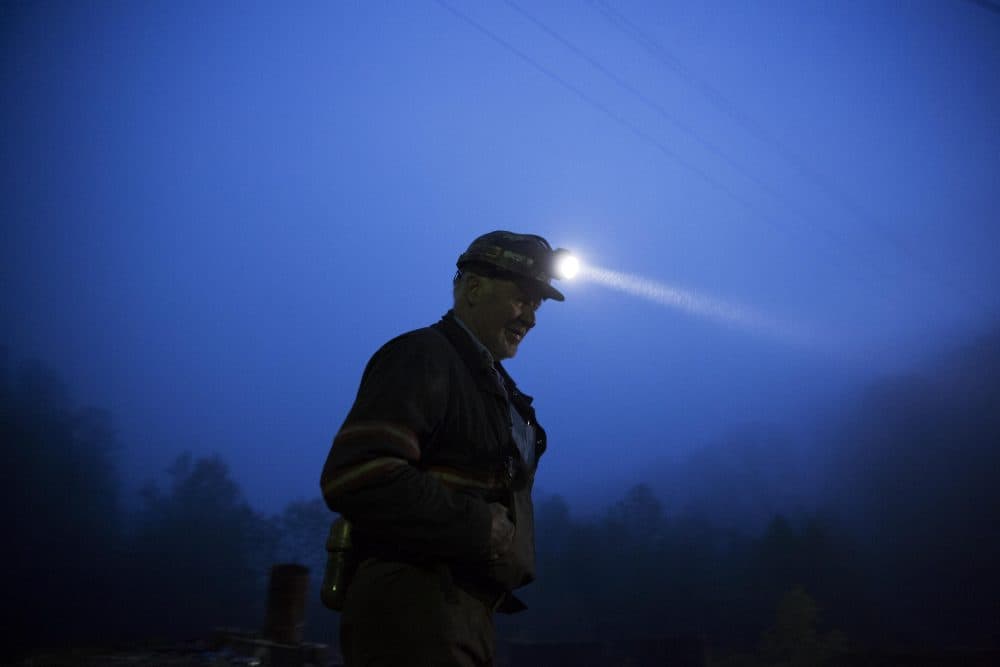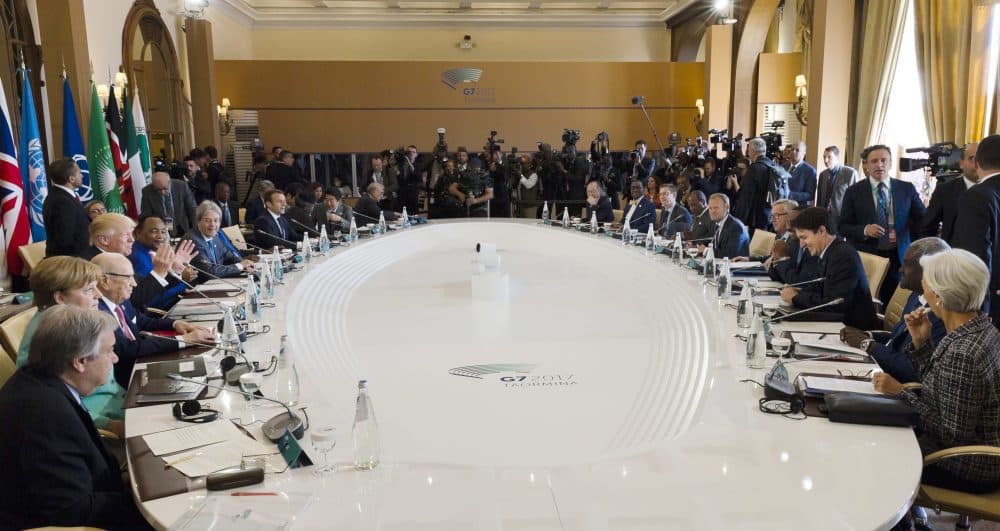Advertisement
Commentary
Leaving The Paris Climate Accord Will Damage The Economy Trump Hopes To Save

Give him credit for consistency. Donald Trump’s expected decision to leave the 2015 Paris agreement on climate change is out of the same playbook he’s used since his inauguration. After taking office, Trump began the process of erasing former President Barack Obama’s climate change legacy — exiting Paris is the next logical step.
Now he will be able to say he’s kept his word, even if withdrawing from the Paris climate accord is a reckless act premised on a cavalier attitude toward climate change and the simplistic assumption that an unencumbered fossil fuel industry will open the throttle of the U.S. economy. He may rightly claim that the decision to withdraw from the agreement is consistent with his energy policies, but, in addition to it being a setback for the climate movement, Trump’s action could end up working against the fossil fuel industries he has been keen to promote.
The Paris climate agreement was designed to maximize participation. The world’s nations went to Paris each with their own plan to reduce emissions, together seeking to limit the increase in global average temperature to 2 degrees Celsius by the end of this century. The climate mitigation strategy that the United States brought to Paris was predicated on the Clean Power Plan — the set of regulations that Obama’s Environmental Protection Agency developed to reduce emissions from power plants. Deep cuts in emissions from the power generation sector are critical to meeting the commitments made in Paris, but an executive order that Trump issued in March set the wheels in motion to roll back the Clean Power Plan, or at least substantially weaken it.
Trump’s action could end up working against the fossil fuel industries he has been keen to promote.
By taking steps to end Obama’s plan before it could come into force, the Trump administration openly sneered at the Paris climate accord. So withdrawal from the agreement would appear to be consistent with Trump’s avid support of domestic fossil fuel production. But is it? Before his apparent decision to withdraw, Trump was urged not to do so by some large American businesses, including — paradoxically — Trump’s pet industry: big coal.
Because the American coal industry depends on its exports, some — not all — of the major American coal producers deemed it advantageous to be participants in global negotiations on greenhouse gas output. Reuters reported in April that the coal lobby was urging the administration to stay in the Paris climate accord in hopes that so-called “clean coal” technology could be part of the future energy mix of countries that import American coal.
It wasn’t only the coal industry. An increasingly significant source of revenue for the energy giants is natural gas — also a carbon-intensive fossil fuel, but marginally cleaner than coal. Conversion of power plants from coal to gas has reduced global carbon emissions during the past decade, and converting the substantial fraction of the world’s power plants that are still burning coal could be lucrative for gas producers. Staying in the Paris climate accord would have sent a positive signal for natural gas development globally.

But Trump’s fervent determination to let loose oil, gas and coal production blinds him to the scientific realities of carbon pollution that the rest of the world accepts. Energy executives know that climate change is real and that carbon-based fuels will be phased out this century. They’re developing strategies to mitigate the business risks as they ease into renewable energy. American participation in the Paris climate accord would improve their chances of making a soft landing in the future energy landscape. Trump’s expected withdrawal from the Paris agreement -- intended to spur domestic production of fossil fuels as a tonic for the economy — may end up harming the big energy companies more than it helps them.
Absent from the discussion of the decision to exit the agreement was the question of Trump's concern about climate change. From his obtuse propping up of the coal industry, to the scrubbing of climate references from the EPA website, to the expansion of oil drilling in the Arctic Ocean -- it is evident that the administration is hostile to any environmental measures that would impinge on the American fossil fuel industry.
Advertisement
This decision has never been about climate change. It is about a campaign promise and a blindered energy policy. Oblivious to the urgency of the inevitable transition away from fossil fuels, Trump has stumbled down a path that imperils the climate and clouds the future of the megacorporations he hoped to help.
As the transcendentalist Ralph Waldo Emerson aptly said: “A foolish consistency is the hobgoblin of little minds, adored by little statesmen and philosophers and divines.” Our little statesman is consistent — but dangerously wrong.
